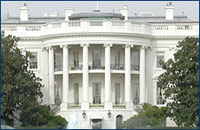Particular Humanities: A Lesson Before Dying, A Long Walk to Freedom, and The Wire
 This is a vintage Murray post in that I take the Question of the Month (favorite book or movie about the law) and, as I like to say, “tweak it” (and, as Michael likes to say, “ignore it”). I am selecting two books, Ernest J. Gaines’ A Lesson Before Dying and Nelson Mandela’s A Long Walk to Freedom, and one television series, The Wire. I choose them because each examines what I consider a key question: how individuals maintain their humanity as they negotiate potentially unjust legal systems.
This is a vintage Murray post in that I take the Question of the Month (favorite book or movie about the law) and, as I like to say, “tweak it” (and, as Michael likes to say, “ignore it”). I am selecting two books, Ernest J. Gaines’ A Lesson Before Dying and Nelson Mandela’s A Long Walk to Freedom, and one television series, The Wire. I choose them because each examines what I consider a key question: how individuals maintain their humanity as they negotiate potentially unjust legal systems.
A Lesson Before Dying taught me that lawyers have to be advocates for their clients’ humanity.


